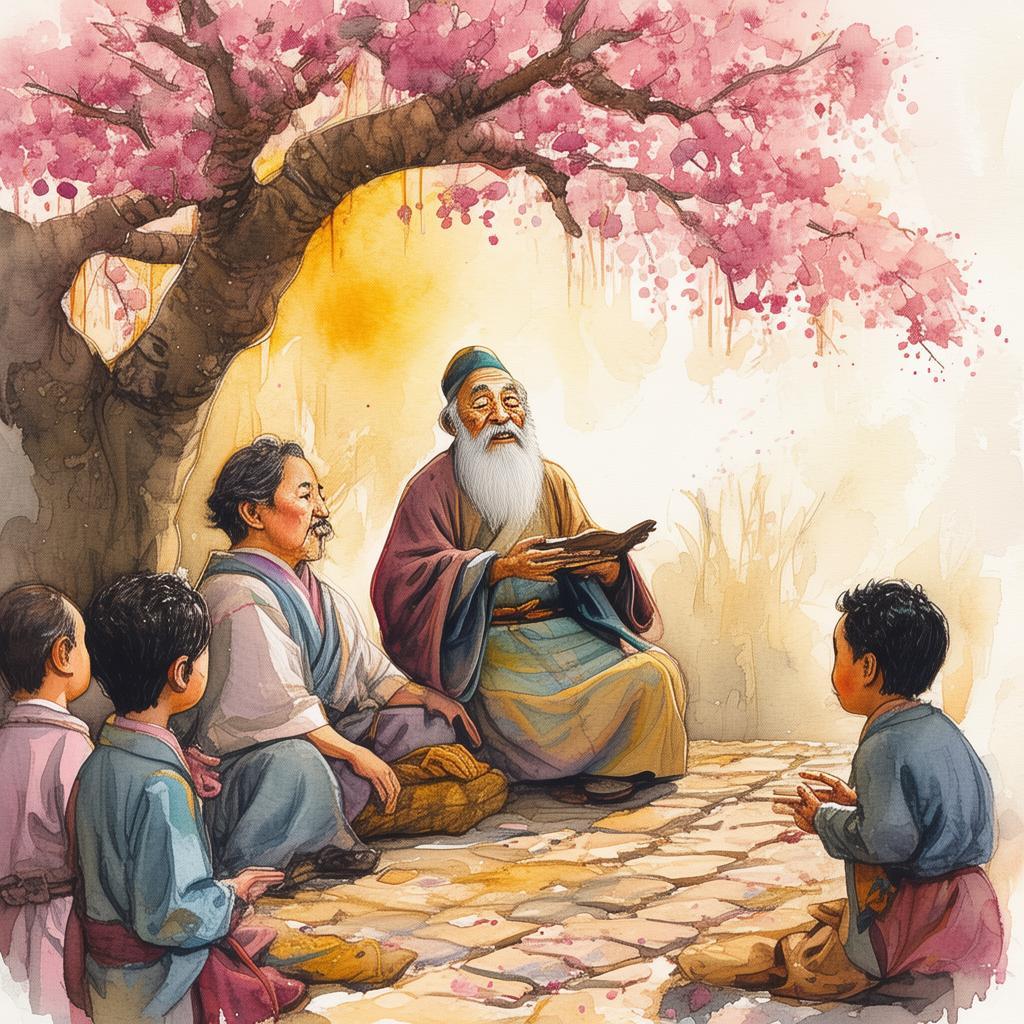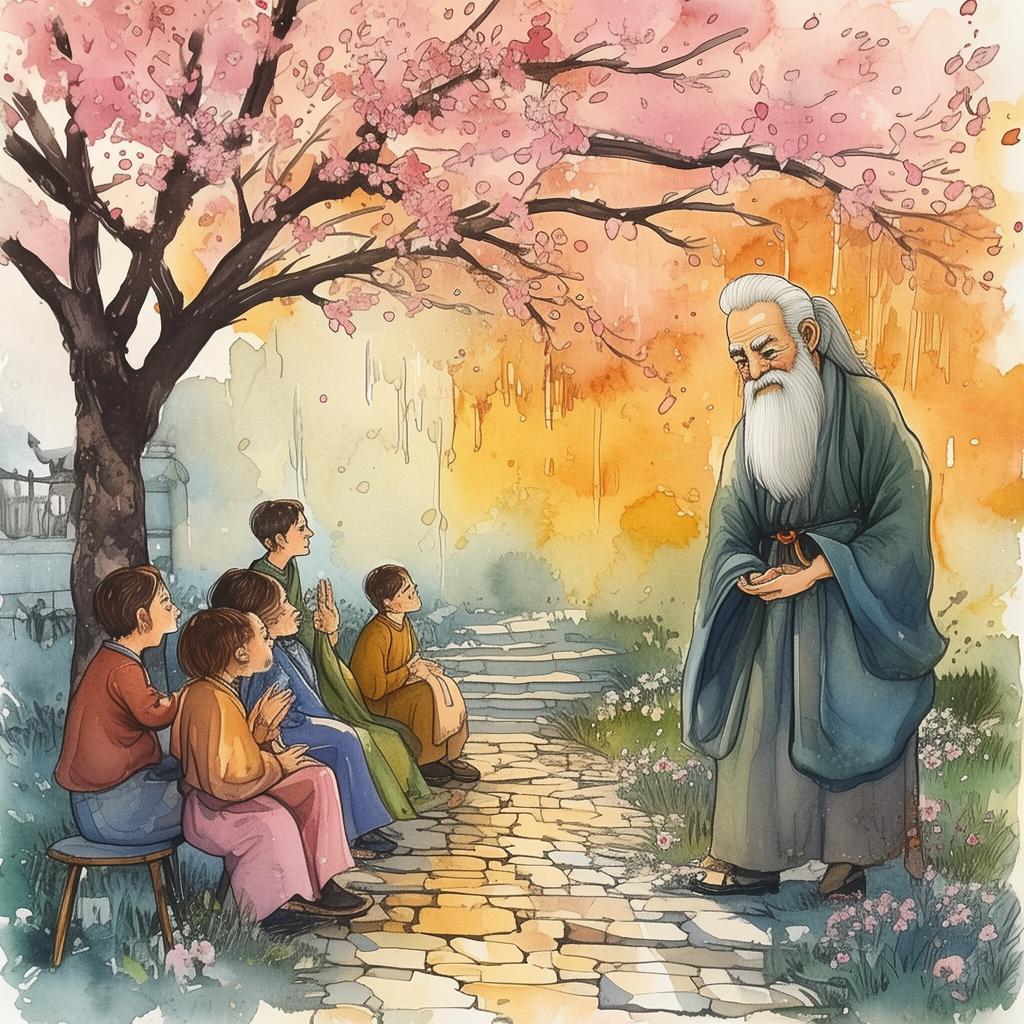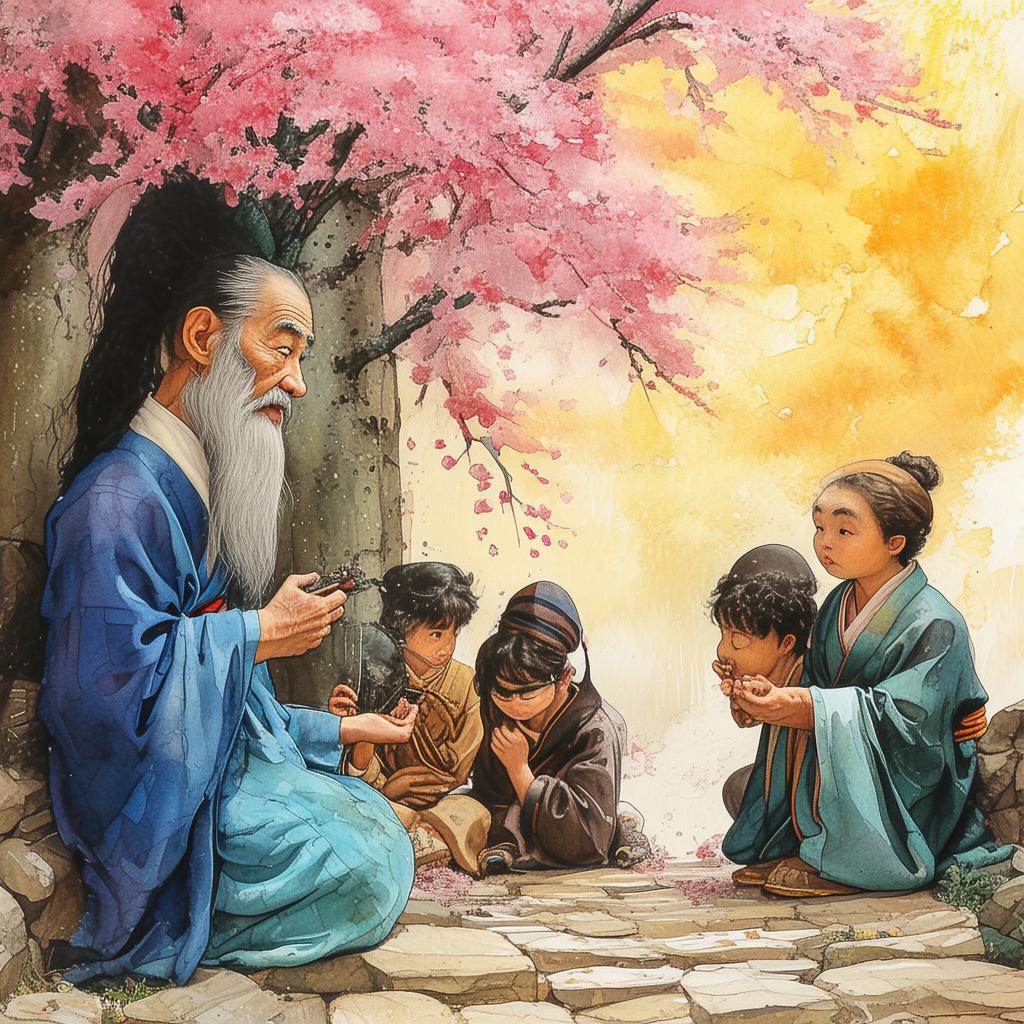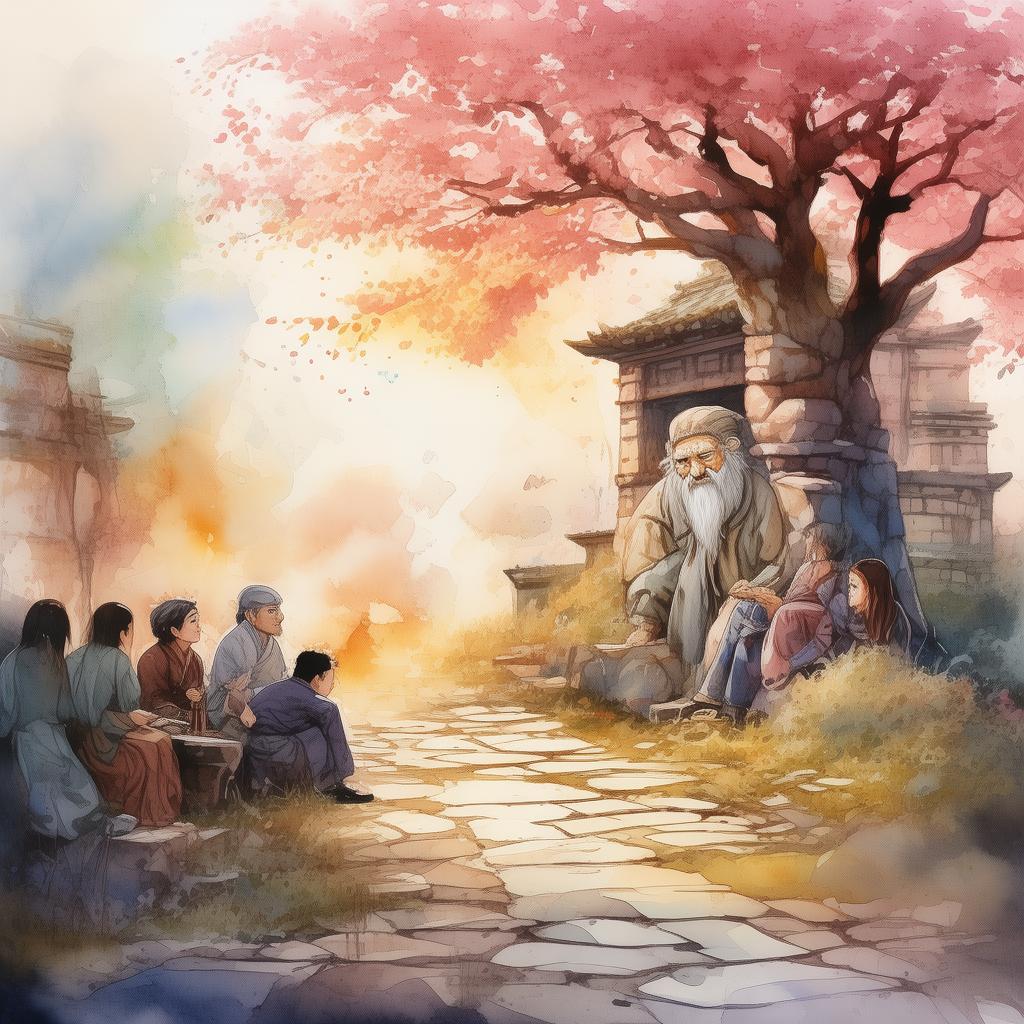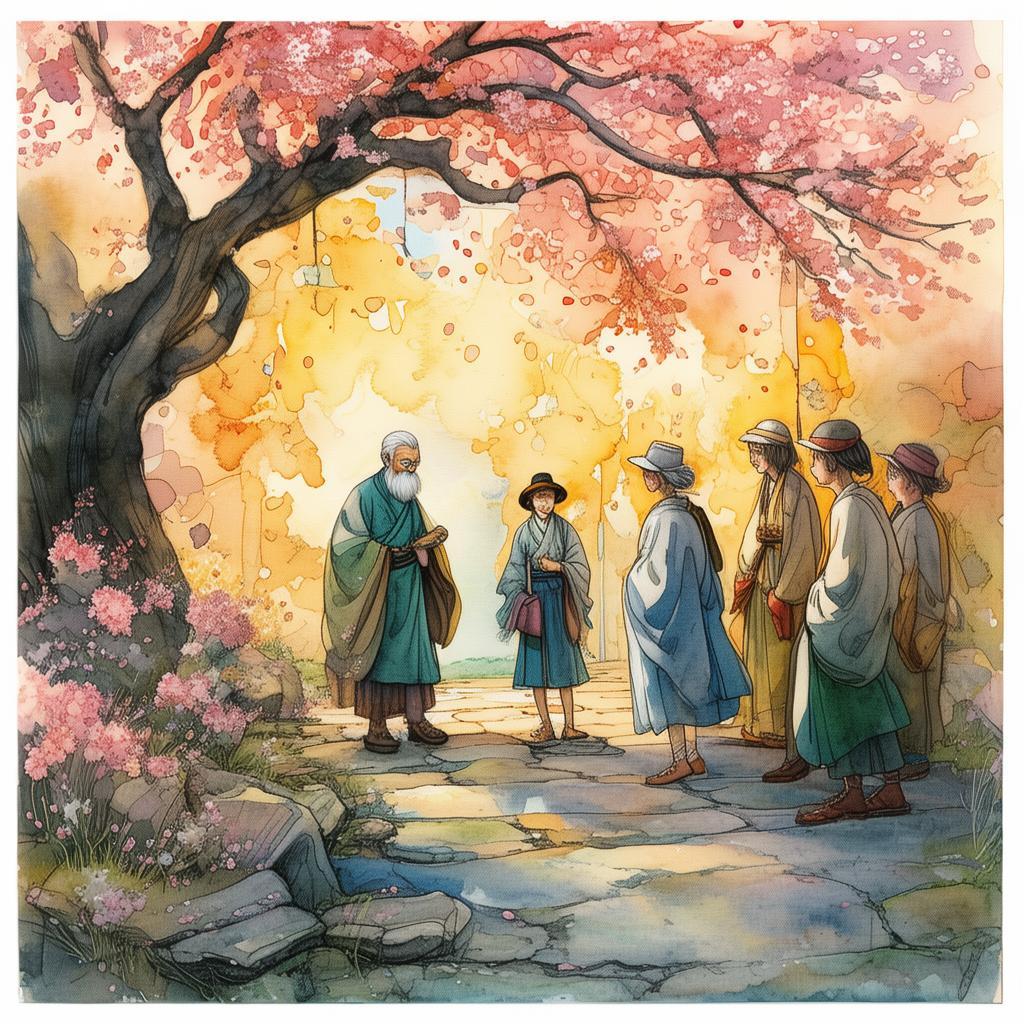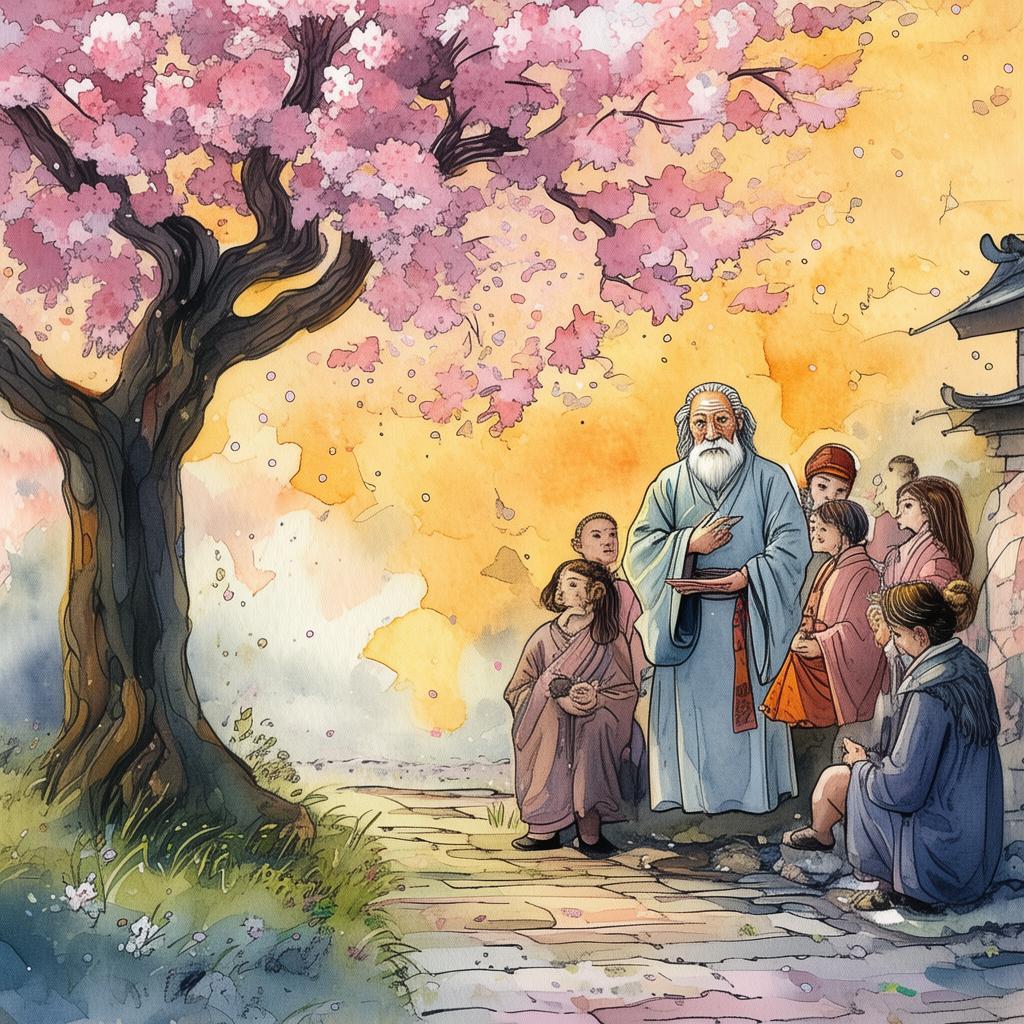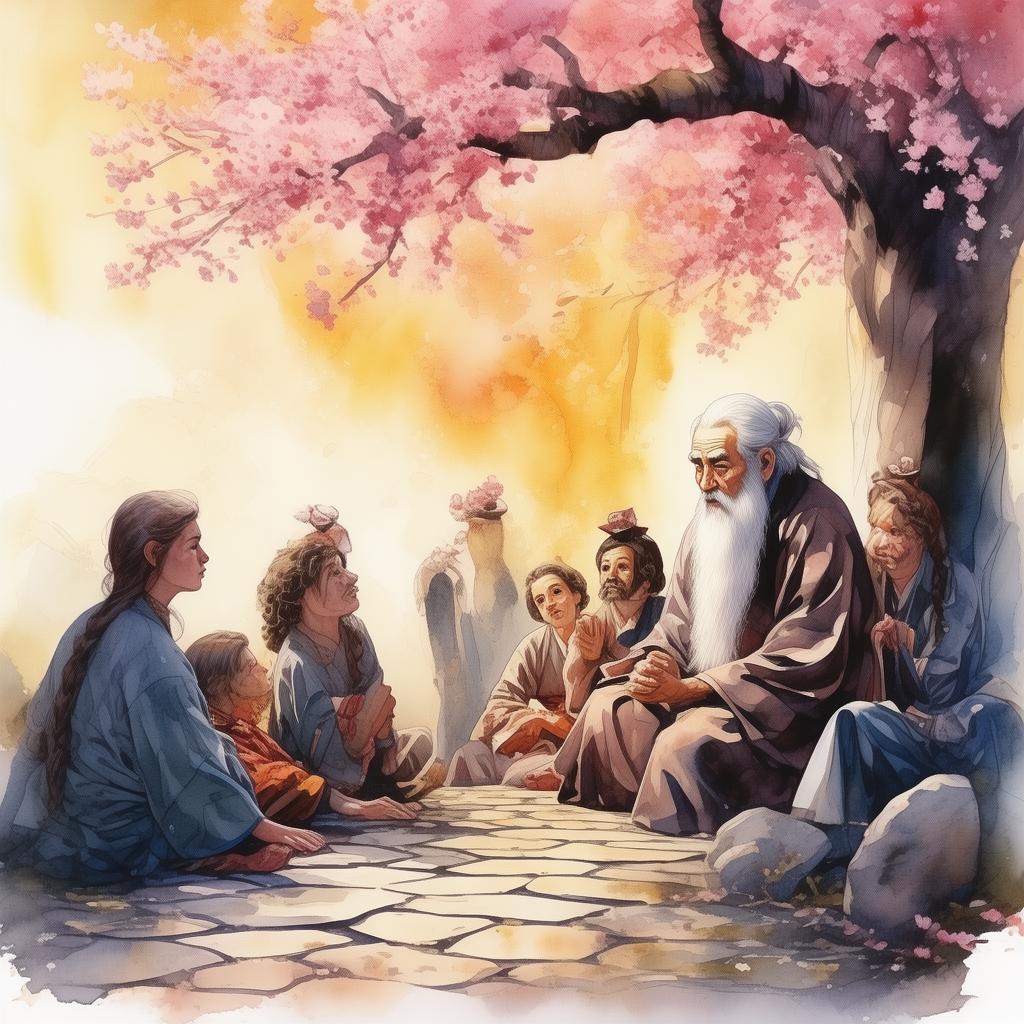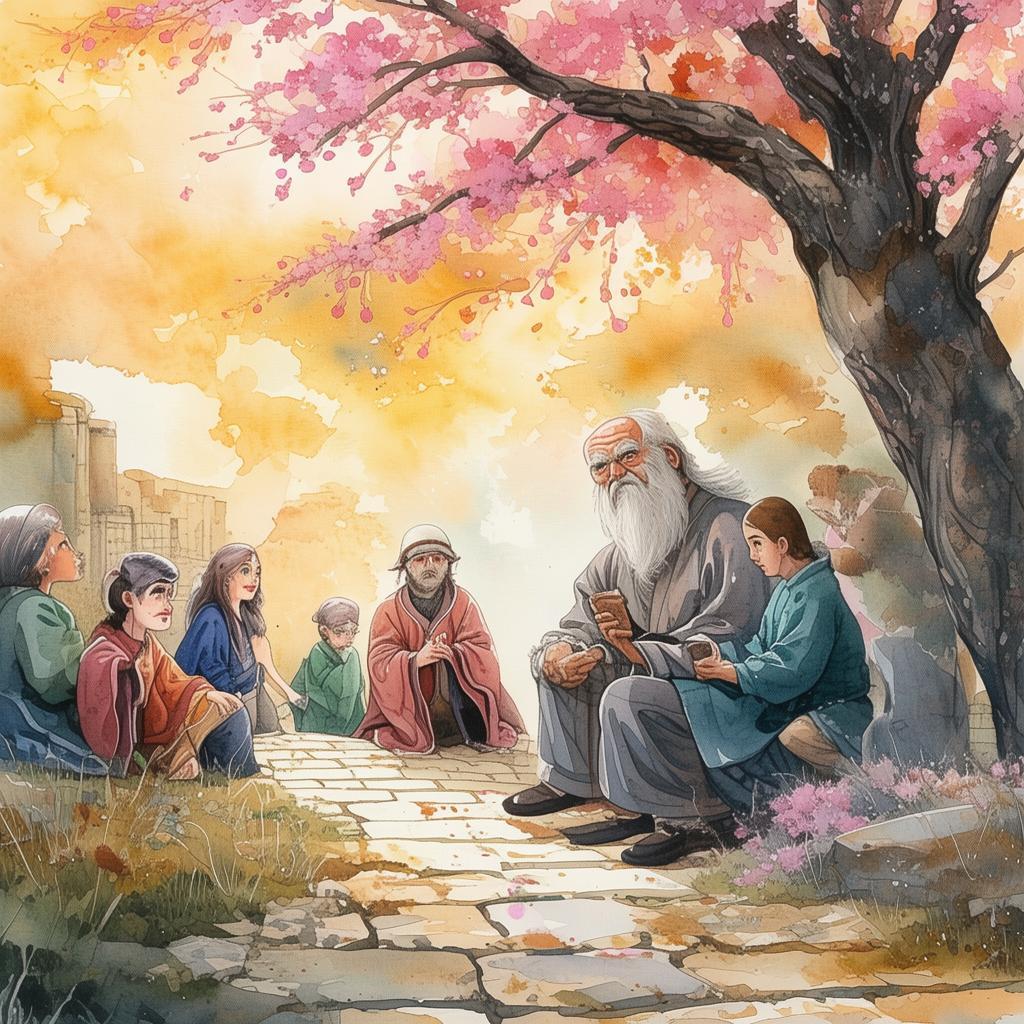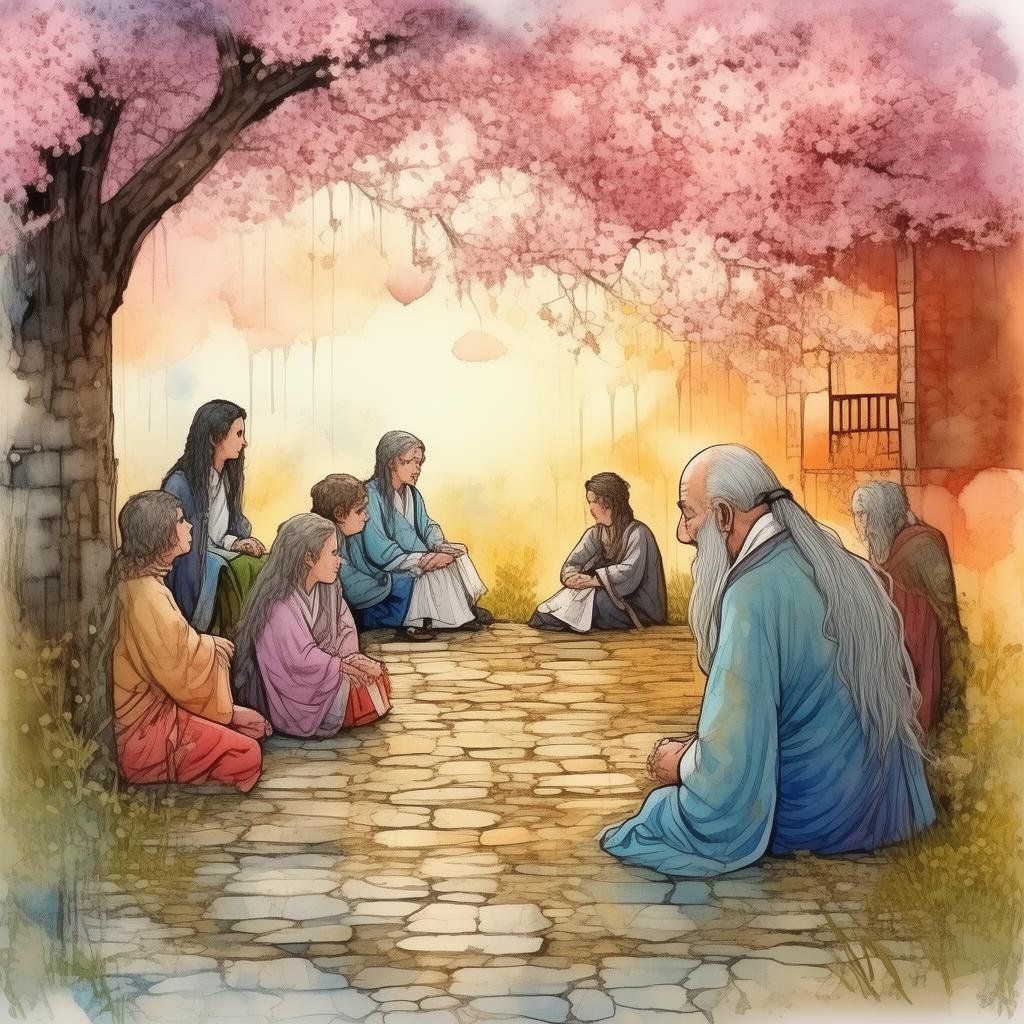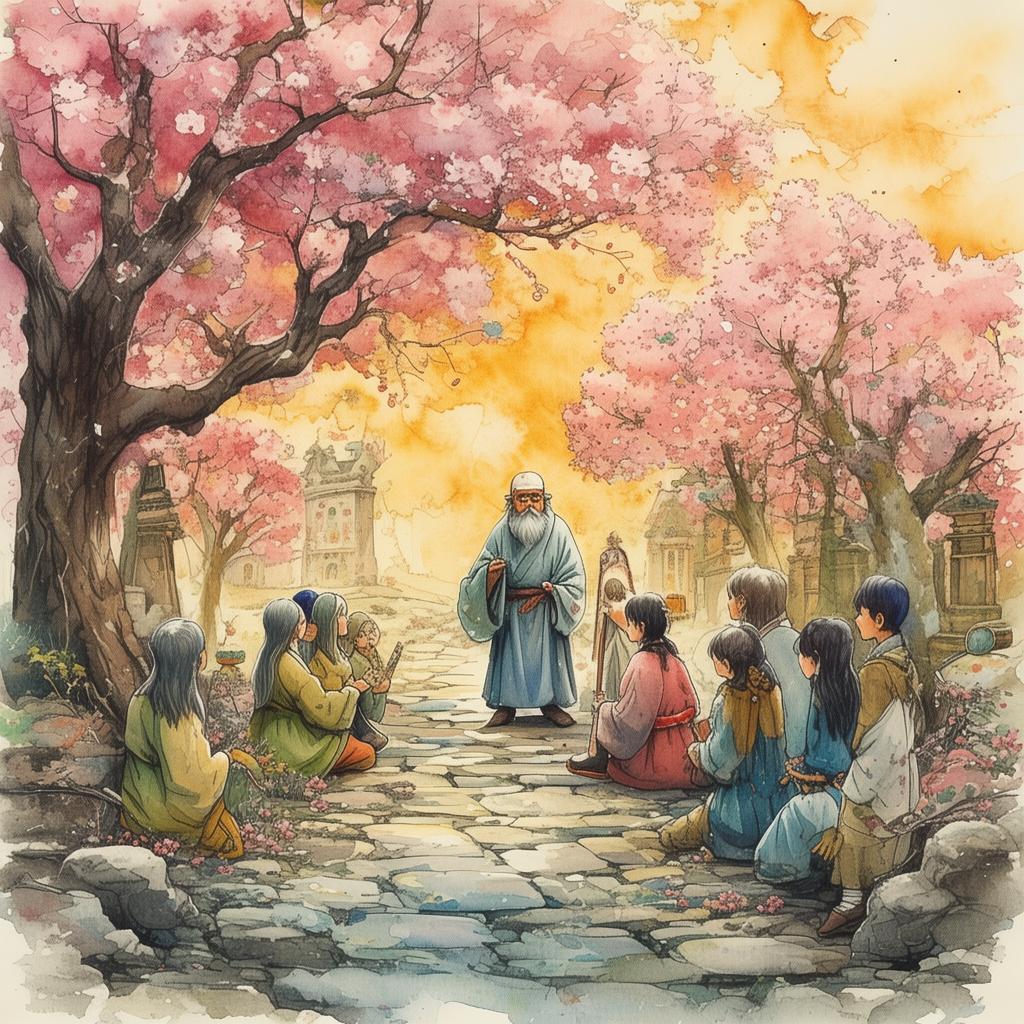The Iron Will of the Judo Poet
In the heart of Tokyo, where the morning sun painted the skyline in hues of gold and crimson, there stood a small dojo, a sanctuary of discipline and tradition. Inside, a man named Kaito, known for his unparalleled skill in judo and his soulful verses, found solace in the rhythm of his daily routines. Kaito was not just a judo master; he was a poet of the mat, his movements telling tales of ancient warriors and the spirit of perseverance.
The dojo was a place where the scent of sweat and the sound of grunts mingled with the soft whispers of Kaito's verses. His students, young and old, watched in awe as he executed his techniques with a grace that seemed to dance across the tatami. Yet, something was amiss. Kaito's eyes, once sparkling with the fire of his passion, now held a shadow that seemed to grow with each passing day.
It all began when Kaito received a letter—a message from a long-lost friend, a fellow judo poet, who had disappeared years ago. The letter spoke of a Judo Championship, a tournament that brought together the best judo practitioners from across the globe. The friend's words were a siren call, a challenge to Kaito's spirit to return to the ring and prove that the heart of a judo poet was not a thing of the past.
Kaito's first thought was of joy, a surge of excitement that had not visited him in years. He began training with renewed vigor, the weight of his poems and the judo techniques flowing through his veins like a powerful current. However, as the days passed, he found himself struggling to find the same spark that had once fueled his art.
The weight of the past bore down upon him. Kaito's poems had always been a reflection of his life, his triumphs and his trials. But now, his words felt hollow, like echoes of a once vibrant voice that had fallen silent. The more he tried to write, the more he felt his poetry was a mere shadow of its former self.
One evening, as the sun dipped below the horizon, casting the dojo in a dim glow, Kaito sat alone on the tatami, his face etched with a profound sadness. He felt lost, adrift in a sea of his own making. "Is this it?" he whispered to the shadows. "Is my time as a judo poet truly over?"
It was at this moment that he heard a voice, soft yet resolute, "You may have lost your voice, Kaito, but you have not lost your heart. The true art of judo is not in the technique but in the will to never give up."
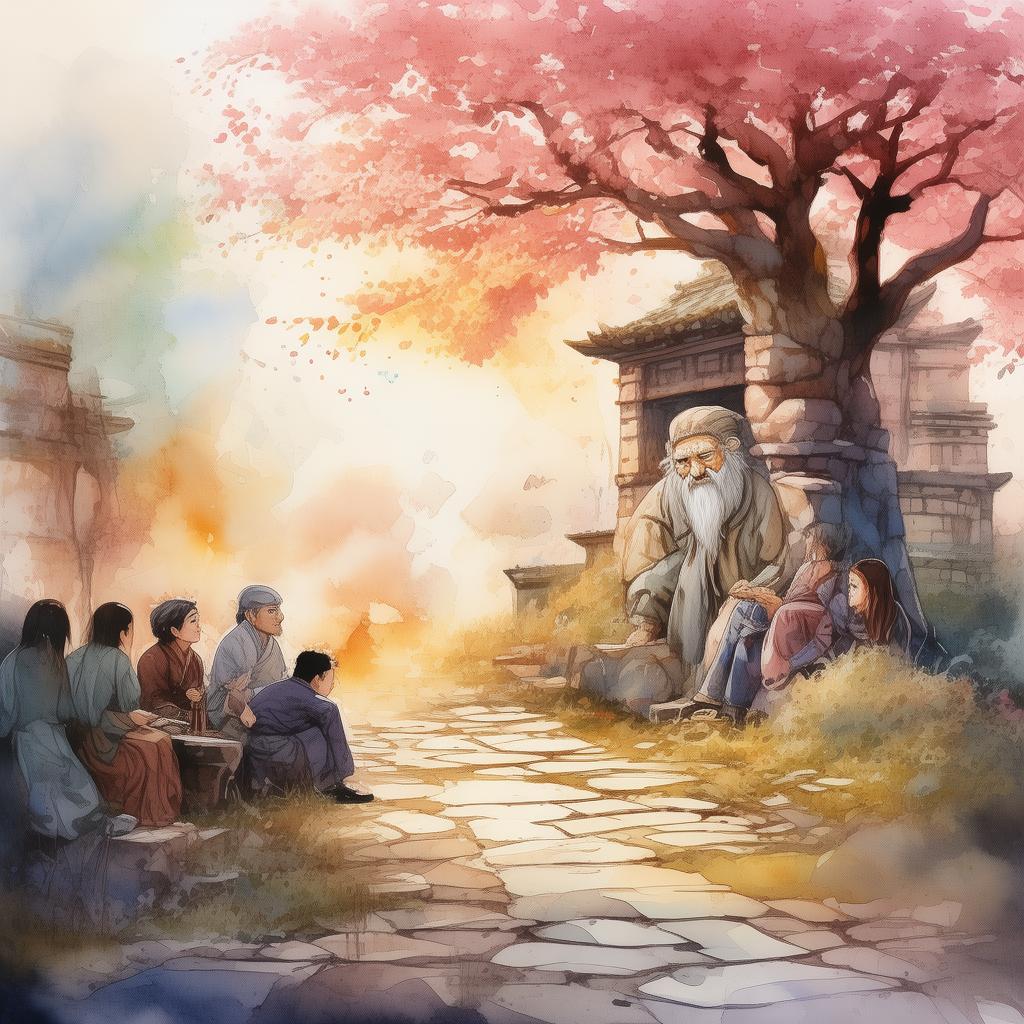
The voice belonged to an old sensei, a man whose eyes had seen many battles and whose hands had taught countless students the art of judo. Kaito looked up, his eyes meeting those of the sensei, and felt a flicker of hope ignite within his chest.
The sensei continued, "Your poetry is not dead, Kaito. It is just sleeping. You must reach deep within yourself, to the core of your being, and wake it up. And when you do, you will find that your judo will be as vibrant as ever."
Inspired by the sensei's words, Kaito rose from the tatami, the weight of his sorrow now replaced by a resolve as unyielding as the iron that judo is forged from. He began to train with an intensity that left his students in awe, a man who had found his purpose anew.
The days turned into weeks, and the weeks into months. Kaito's judo techniques became sharper, his spirit unbreakable. He began to write again, not just with his pen but with his every movement on the mat. His poems found new life, echoing the strength and resilience of his judo.
The day of the Judo Championship arrived, and Kaito stood in the ring, facing opponents who were as skilled as they were fierce. Each match was a battle of wills, a clash of poetry and judo, as Kaito fought not just to win but to remind the world of the enduring power of the judo poet's spirit.
In the final match, Kaito faced his greatest challenge yet—a judo master known for his ruthless approach and his unbreakable will. The match was intense, a dance of movement and intent, a battle that tested the very limits of Kaito's resolve.
As the final seconds ticked away, Kaito found himself in a submission hold, his opponent's grip as unyielding as the iron he once sculpted with his own hands. Kaito's mind raced, his poetry flowing through him as he sought a way to break free. "This is it," he thought, his heart pounding against his chest.
With a surge of determination, Kaito found the strength within himself to escape the hold, his movements as fluid and graceful as the verses he once wrote. In the end, it was not just Kaito's judo that won him the match but his spirit, his unyielding will to never give up.
The crowd erupted in cheers as Kaito rose from the mat, his eyes shining with the same fire that once burned in his heart. He had not just won a judo championship; he had won back his voice, his poetry, and his purpose.
In the aftermath of the tournament, Kaito returned to his dojo, his heart full and his spirit invincible. He found his students waiting for him, their faces alight with pride and admiration. "Master Kaito," one of them whispered, "you have shown us that the true power of judo is not in the technique but in the heart."
Kaito smiled, a soft glow of contentment spreading across his face. "Yes," he replied, "the heart of a judo poet is like the iron of our craft—it may bend, but it will never break."
And so, Kaito's journey continued, his poetry and judo intertwining like the threads of a tapestry, each stroke and verse adding to the rich tapestry of his life. The legend of the judo poet had been reborn, a testament to the enduring power of determination and the unbreakable will of the human spirit.
✨ Original Statement ✨
All articles published on this website (including but not limited to text, images, videos, and other content) are original or authorized for reposting and are protected by relevant laws. Without the explicit written permission of this website, no individual or organization may copy, modify, repost, or use the content for commercial purposes.
If you need to quote or cooperate, please contact this site for authorization. We reserve the right to pursue legal responsibility for any unauthorized use.
Hereby declared.
